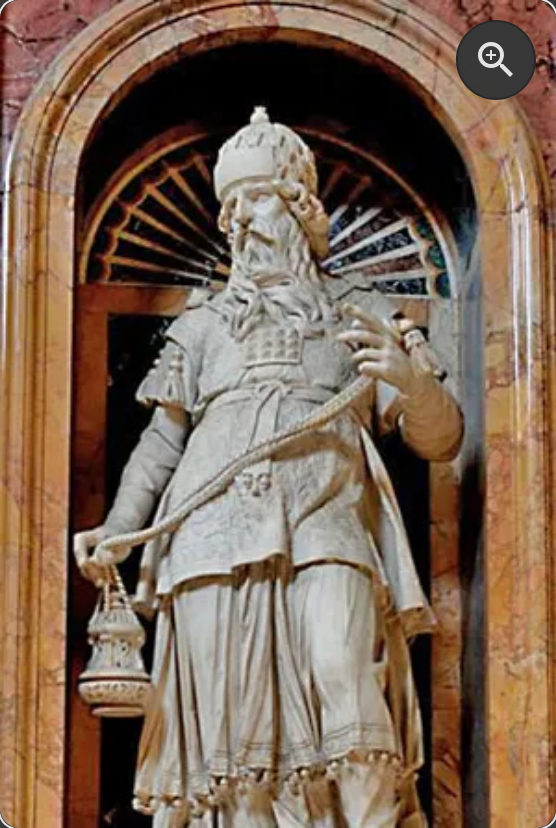Order of Melchisedec
Based on the King James Bible what is meant by Order of Melchisedec
So I’ve got this question about the “Order of Melchizedek” based on the
King James Bible. First off, I need to make sure I understand who
Melchizedek is and what his order refers to. I remember from my religious
studies that Melchizedek was a figure in the Old Testament, but I’m a bit
fuzzy on the details.
Let me start by looking up Melchizedek in the King James Bible. From what
I recall, he appears in the book of Genesis. Let me find that passage.
Okay, in Genesis 14, there’s a account about Melchizedek:
The King of Salem
” And Melchizedek king of Salem brought forth bread and wine: and he was
the priest of the most high God.”
So here, Melchizedek is described as both the king of Salem and the priest
of the most high God. That’s interesting because usually, in the biblical
narrative, the roles of king and priest are separate. So, having one
person hold both positions might signify something important.
Moreover, Abraham pays tithes to Melchizedek in this passage, which is
significant because it shows a recognition of Melchizedek’s authority or
holiness. After that, Melchizedek blesses Abraham, and Abraham
acknowledges him.
Now, the term “Order of Melchizedek” seems to be more prominently
discussed in the New Testament, particularly in the Epistle to the
Hebrews. The King James Bible has this epistle, so maybe I should look
there for a clearer explanation.
In Hebrews 5:6, it says:
” As he saith also in another place, Thou art a priest for ever after the
order of Melchizedec.”
This is referring to Psalm 110:4, which prophesies about a eternal
priesthood. So, the author of Hebrews is drawing a connection between
Jesus and Melchizedek, suggesting that Jesus holds a priesthood similar to
Melchizedek’s—an eternal one.
Let me read further in Hebrews chapter 7, which delves deeper into this
comparison:
” For this Melchisedec, king of Salem, priest of the most high God, who
met Abraham returning from the slaughter of the kings, and blessed him; To
whom also Abraham gave a tenth part of all; first being by interpretation
King of righteousness, and after that also King of Salem, which is, King
of peace; Without father, without mother, without descent, having neither
beginning of days, nor end of life; but made like unto the Son of God;
abideth a priest continually.”
So, here, Melchizedek is described as without ancestry, without
descendants, and with an eternal existence, which is used to illustrate
the superiority of his priesthood over the Levitical priesthood, which was
tied to bloodlines.
The author argues that Jesus, like Melchizedek, has an eternal priesthood,
not dependent on genealogy but on a power of an indestructible life.
So, in summary, the “Order of Melchizedek” refers to a priesthood that is
not based on familial descent, like the Levitical priesthood, but on a
divine appointment, signifying its eternity and superiority.
I think that’s the main point. Maybe there’s more to it, but that seems to
be the core idea based on the King James Bible’s texts.
Final Answer
The “Order of Melchizedek” refers to a priesthood not
based on familial descent but on divine appointment, signifying its
eternity and superiority.
In the Old Testament- Melchizedek
[Gen 14:18 KJV] 18 And Melchizedek king of Salem brought forth bread and wine: and he [was] the priest of the most high God.
[Psa 110:4 KJV] 4 The LORD hath sworn, and will not repent, Thou [art] a priest for ever after the order of Melchizedek.
In the New Testament- Melchisedec
Here we find the term the Order of Melchisedec.
[Heb 5:6, 10 KJV] 6 As he saith also in another [place], Thou [art] a priest for ever after the order of Melchisedec. … 10 Called of God an high priest after the order of Melchisedec.
[Heb 6:20 KJV] 20 Whither the forerunner is for us entered, [even] Jesus, made an high priest for ever after the order of Melchisedec.
[Heb 7:1, 10-11, 15, 17, 21 KJV] 1 For this Melchisedec, king of Salem, priest of the most high God, who met Abraham returning from the slaughter of the kings, and blessed him; … 10 For he was yet in the loins of his father, when Melchisedec met him. 11 If therefore perfection were by the Levitical priesthood, (for under it the people received the law,) what further need [was there] that another priest should rise after the order of Melchisedec, and not be called after the order of Aaron? … 15 And it is yet far more evident: for that after the similitude of Melchisedec there ariseth another priest, … 17 For he testifieth, Thou [art] a priest for ever after the order of Melchisedec. … 21 (For those priests were made without an oath; but this with an oath by him that said unto him, The Lord sware and will not repent, Thou [art] a priest for ever after the order of Melchisedec:)
In the https://www.britannica.com/biography/Melchizedek I found this and much more background info.
Why was Melchizedek important?
Melchizedek, who appears in the Old Testament, is important in biblical tradition because he was both king and priest, connected with Jerusalem, and revered by Abraham, who paid a tithe to him. For Abraham to recognize the authority and authenticity of a Canaanite priest-king is startling and has no parallel in biblical literature.
What does the name Melchizedek mean?
Melchizedek is an old Canaanite name meaning “My King Is [the god] Sedek” or “My King Is Righteousness” (the meaning of the similar Hebrew cognate).
What was Melchizedek’s religion?
Melchizedek’s religion would have been part of the Canaanite tradition. The god whom Melchizedek serves as priest is “El ʿElyon,” a name of Canaanite origin, probably designating the high god of their pantheon.
Melchizedek, in the Hebrew Bible (Old Testament), a figure of importance in biblical tradition because he was both king and priest, was connected with Jerusalem, and was revered by Abraham, who paid a tithe to him. He appears as a person only in an interpolated vignette (Genesis 14:18–20) of the story of Abraham rescuing his kidnapped nephew, Lot, by defeating a coalition of Mesopotamian kings under Chedorlaomer.
In the episode, Melchizedek meets Abraham on his return from battle, gives him bread and wine (which has been interpreted by some Christian scholars as a precursor of the Eucharist, so that Melchizedek’s name entered the canon of the Roman mass), and blesses Abraham in the name of “God Most High” (in Hebrew El ʿElyon). In return, Abraham gives him a tithe of the booty.
Melchizedek is an old Canaanite name meaning “My King Is [the god] Sedek” or “My King Is Righteousness” (the meaning of the similar Hebrew cognate). Salem, of which he is said to be king, is very probably Jerusalem. Psalm 76:2 refers to Salem in a way that implies that it is synonymous with Jerusalem, and the reference in Genesis 14:17 to “the King’s Valley” further confirms this identification. The god whom Melchizedek serves as priest is “El ʿElyon,” again a name of Canaanite origin, probably designating the high god of their pantheon. (Later, the Hebrews adapted another Canaanite name as an appellation for God.)
Abraham presented Melchizedek with a tithe (a tenth) of all the items he had gathered. By this act Abraham indicated that he recognized Melchizedek as a priest who ranked higher spiritually than he.
In Psalm 110, a messianic psalm written by David (Matthew 22:43), Melchizedek is presented as a type of Christ. This theme is repeated in the book of Hebrews, where both Melchizedek and Christ are considered kings of righteousness and peace. By citing Melchizedek and his unique priesthood as a type, the writer shows that Christ’s new priesthood is superior to the old levitical order and the priesthood of Aaron (Hebrews 7:1–10).

